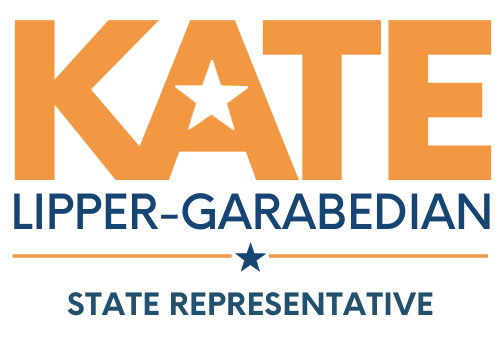Legislature Passes Bill to Collect COVID-19 Data & Address Health Disparities
(Boston – 06/2/2020) Representative Kate Lipper-Garabedian joined Speaker DeLeo and their colleagues in the Massachusetts Legislature to pass a bill to make more information about COVID-19 cases publicly available, including cases at elder care facilities, soldiers’ homes, and houses of correction; it also creates a task force to provide recommendations on how to mitigate health disparities for underrepresented and underserved communities in the wake of the pandemic.
Taken together, the provisions of An Act addressing COVID-19 data collection and disparities in treatment will provide the public with a greater understanding on how the virus is affecting those in locations hardest hit by the pandemic, including elder care facilities and urban areas. The task force, in turn, will make recommendations to alleviate disparities in infection and treatment among populations disproportionally impacted by the outbreak.
“Whether it’s our elderly, our veterans, residing in soldiers’ homes, who have served our country bravely, persons of color, or residents in those communities experiencing a particularly large share of the impact from COVID-19, the burden of this virus has fallen disproportionately on key demographics. We need to make sure we have the best information on the toll the virus is taking in Massachusetts. I look forward to the findings of the task force to determine how we can address the impact of this virus in underserved and underrepresented communities,” said House Speaker Robert A. DeLeo ((D-Winthrop). “I thank Chairs Michlewitz and Balser, Vice Chair Gonzalez and my colleagues in the House for their work on this important bill.”
“A more robust, comprehensive dataset will enable our health care system and state and local policymakers to understand more accurately and respond more effectively to the virus and its aftermath,” said Representative Kate Lipper-Garabedian (D-Melrose). “The efforts required of our state agencies and the work of the newly created task force will be meaningful both for our efforts to address COVID-19 in the months to come and for future public health challenges.”
"This vitally important piece of legislation will help the public have a better understanding of the wide ranging affects that the COVID-19 pandemic has had on our Commonwealth,” said Representative Aaron Michlewitz, Co-Chair of the Joint Committee on Ways & Means (D-Boston). “With this new in-depth data reporting we can respond in a timely fashion to the disparities in care to our most vulnerable populations.”
"COVID-19 is a cruel virus targeting aging adults, especially those with underlying health conditions and who live in congregate settings. The residents, their family members, those who take care of them and the community have the right to know precisely the numbers of cases and deaths at each elder care facility,” said Representative Ruth B. Balser, House Chair of the Joint Committee on Elder Affairs (D-Newton). “Only with that knowledge, can we provide the resources needed to fight this battle."
“Data is essential, and the diversity task force will be a vehicle for real impactful change to address the immediate short term and long term health disparities in communities ravaged by COVID,” said Representative Carlos Gonzalez, Vice Chair of the Joint Committee on Community Development and Small Business, and Chair of the Black and Latino Legislative Caucus (D-Springfield).
The components of the bill are as follows:
· Requires the Department of Public Health to collect daily data on the number of individuals tested positive, hospitalized, deaths, and key demographic information, including cases and mortalities at elder care facilities;
· Specifies details on the format of reporting data from local boards of health and elder care facilities;
· Mandates that elder care facilities notify residents and their healthcare proxies if there is a new confirmed case or mortality due to COVID-19 or 3 or more residents or staff have symptoms;
· Includes the Department of Corrections and each House of Correction among those facilities which must comply with the data collection and reporting provisions of the bill;
· Creates a task force to study and make recommendations on addressing health disparities for underserved or underrepresented populations based on a variety of demographic factors;
· Asks that the task force provide recommendations to improve safety for at-risk populations for COVID-19, remove barriers to quality and equitable health care services, increase access to medical supplies and testing, among other items.
The bill now moves to the governor for consideration.
